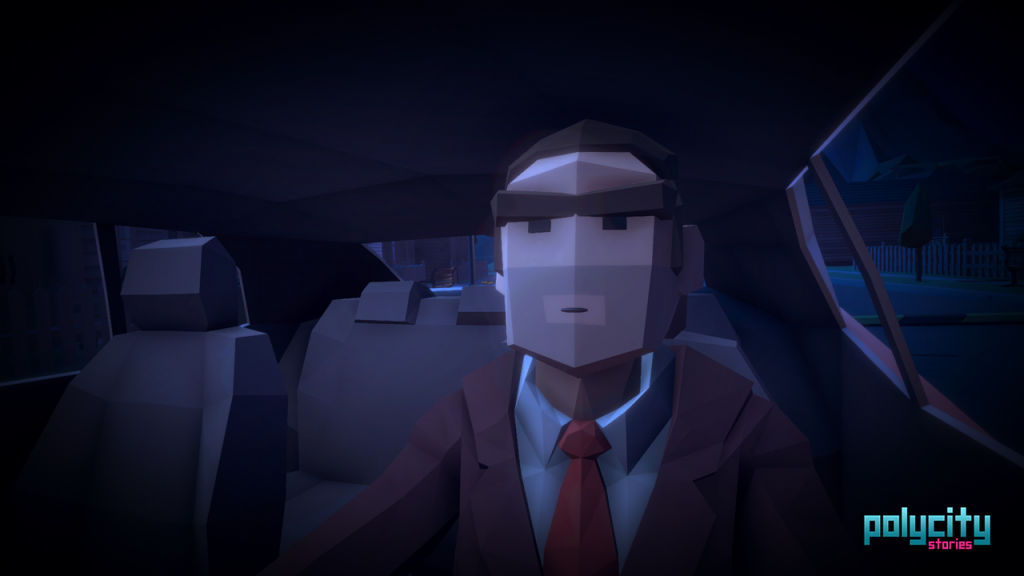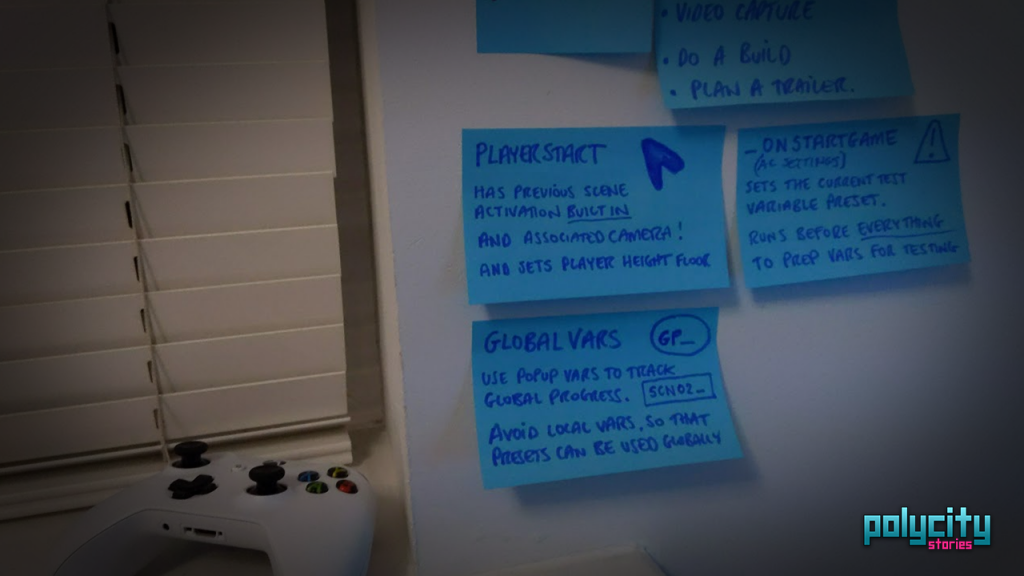I find one of the hardest parts of creating an adventure game as a solo developer is keeping track of where I’m at.
For someone who get’s bored easily and has a limited amount of spare time to spend on development, there’s a huge benefit to having lots of independent things to work on.
It means I can pick a task to suit my mood and the available time slot, be it writing some dialogue, a cutscene or some narration; modelling some new 3D items; laying out a new room, or even diving into a particular coding challenge.
The issue is when you come back to the core interaction coding bit, it’s really hard to remember where you left off and what you were doing.

Even with a small 2 or 3 room graphic adventure like Fantasy Quest, there can be hundreds of item combinations, and pages of variables that all effect each other, depending on which puzzles and parts of the linear story the player has solved.
In some cases I’ve even spent hours designing some clever way to simplify the setting up of a scene, to find that I’d already solved the same problem in another scene a different way 3 weeks ago!
It’s this lack of focus, and the patchy nature of part-time game development which make these projects so tricky. (and make them last soooo long)
So what’s the solution?
Well I’m not totally sure there is one, sorry! Other than quitting your job and doing this full-time (which is fraught with it’s own problems!)
I imagine every solo, part-time developer struggles with similar issues, but there are two specific things I’ve found help me:
- When I fix or discover/remember something helpful to my process, I write it on a post it note and put it on my wall.
- A space for physical notes on the wall is far more prominent than a code comment or a readme file in your project. A collection of really helpful positive tips in your own words, is a great thing to check in on.
- Use a good old spreadsheet to make bug notes
- When you spot an issue write it down immediately, have the spreadsheet open at all times, with sections for each room or scene, date it and make a comment. It’s really cathartic to spend a Sunday afternoon ticking off a whole page of bugs, even the little ones.

And finally, I suppose a last tip (and something I’m rubbish at myself)…
Don’t be too hard on yourself, everyone needs some down-time and when adventure game development is your down-time from your real job, you need to remember to have some down-time from your down-time 🙂 …. otherwise it feels like another job.
Time for a break!

Leave a Reply